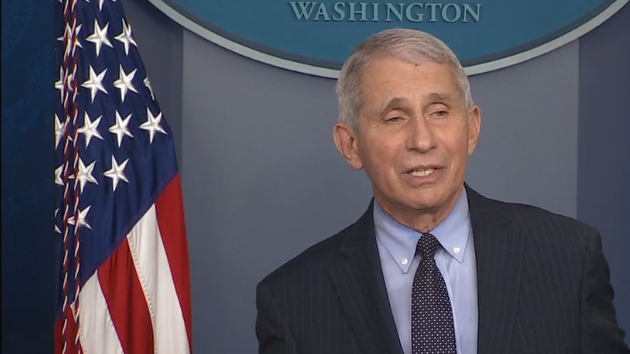Anthony S. Fauci, MD, director of the NIH’s National Institute of Allergy and Infectious Diseases (NIAID), has won one of this year’s three $1 million Dan David Prizes, awarded to individuals and organizations deemed to be “globally inspiring.”
The Dan David Prize honors outstanding contributions that “expand knowledge of the past, enrich society in the present, and promise to improve the future of our world.”
“The coronavirus pandemic has presented humanity with new challenges,” stated Ariel Porat, professor and president of Tel Aviv University (TAU) and chairperson of the Dan David Prize Board. “Therefore, this year, we decided to honor the fields at the forefront of the battle against the virus—health and medicine.”
Award winners were selected this year by international review committees for their pioneering work and their exceptional contributions to humanity in health and medicine in the past, the present, and the future.
Fauci will receive the award as the winner of the “Present” category of Public Health.
Fauci, who turned 80 on Christmas Eve, was trained as a physician and immunologist, before being appointed NIAID director in 1984.
At NIAID, which had an FY 2021 budget of about $6.1 billion, he served as a principal architect of the President’s Emergency Plan for AIDS Relief (PEPFAR), through which the U.S. government has spent more than $85 billion on global HIV/AIDS response efforts.
Since its inception in 2003, PEPFAR has been credited with saving over 18 million lives, preventing millions of HIV infections, and achieving HIV/AIDS epidemic control in more than 50 countries around the world.
Fauci is credited with seminal contributions to understanding how HIV destroys the body’s defenses, leading to its susceptibility to deadly infections, as well as to the development of treatments that have enabled people with HIV to live long and active lives. His infectious disease expertise has stretched from HIV to outbreaks of SARS, MERS, Ebola, and over the past year, COVID-19.
A 2020 analysis of Google Scholar citations showed Fauci to have ranked as the 32nd most-cited living researcher. According to Web of Science, Fauci ranked ninth out of 2.5 million authors in the field of immunology by total citation count between 1980 and January 2021.
Fauci also is the longtime chief of the Laboratory of Immunoregulation, and is also credited with contributions to basic and clinical research on the pathogenesis and treatment of immune-mediated and infectious diseases.
Joining Fauci as winners of Dan David Prizes are health and medicine historians Alison Bashford, PhD, professor, University of New South Wales Sydney; Katharine Park, PhD, professor, history of science, Harvard University; and Keith Wailoo, PhD, professor of history and public affairs, Princeton University, all for their work in the “Past” category of the History of Health and Medicine.
Also winning Dan David Prizes are three pioneers of cancer immunotherapy: Zelig Eshhar, PhD, professor of chemical and cellular immunology, Weizmann Institute of Science and Tel Aviv Sourasky Medical Center; Carl H. June, MD, director of the Center for Cellular Immunotherapies and of the Parker Institute for Cancer Immunotherapy at Perelman School of Medicine, the University of Pennsylvania; and Steven Rosenberg, MD, PhD, chief surgery branch senior investigator head, tumor immunology section of the National Cancer Institute, all in the “Future” category of Molecular Medicine.
All seven laureates will be honored at the 2021 Dan David Prize Award Ceremony, to be held in a special online event in May 2021.
The Dan David Prize was established in 2000 by the late Dan David, an international businessman and philanthropist. His aim was to reward those who have made a lasting impact on society and to help young students and entrepreneurs become the scholars and leaders of the future.


